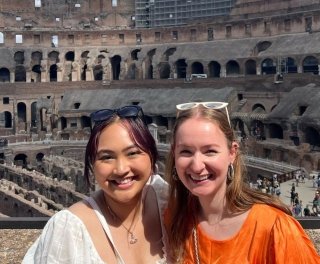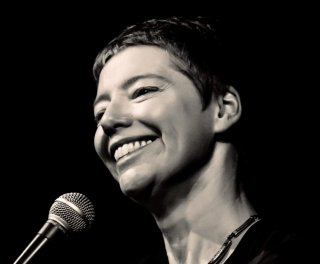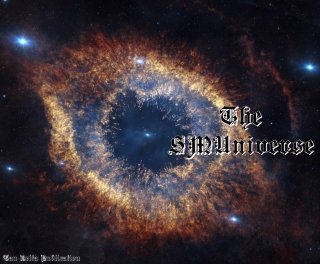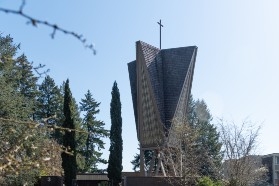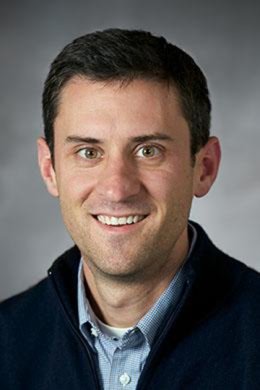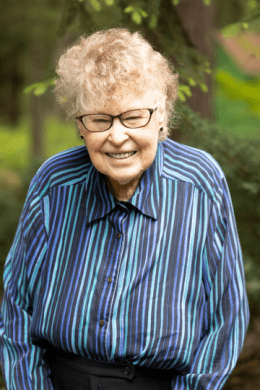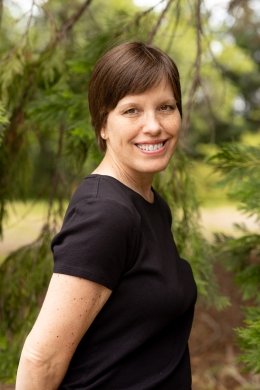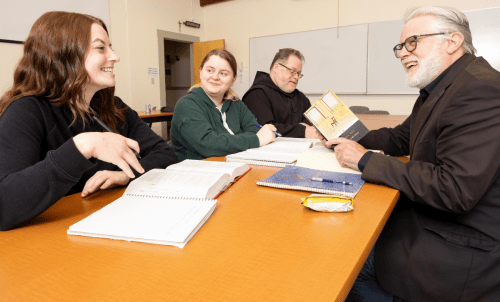
Literary Studies
In this program, we examine literature as a living process intimately connected with the complex problems of its place, culture, community and history through courses in writing, rhetoric and literary theory.
Jump to
Why Saint Martin's University?
Literary Studies is an enriching and professionally useful major in many colleges and universities, but at Saint Martin’s, we specialize in introducing students to “community” as a many-dimensioned approach. Our courses bring global and historical literary worlds to the forefront; moreover, our activities—Literary Nights at the Lambert Lodge, Public Readings of Romantic poetry on Saint Valentine’s Day (and scary prose on Halloween), and various other events—make the connection that community is readily present in the lived experience as well as the written word. Pushing the idea of community out even further, every faculty member of the English Department has taken students abroad to study and experience literature at its source: Shakespeare at the Globe, Tolkien at Oxford, Austen at Bath, Dante at Florence—the list goes on and on.
The literary studies curriculum introduces our majors and minors to a substantial body of knowledge in British, American and Anglophone literature, as well as literary works in translation from across the globe and throughout history. Literary studies majors are encouraged to become familiar with a broad array of literary traditions and critical methodologies before specializing in a capstone project—a research-intensive, interpretive thesis undertaken in the senior year.
English/Literary Studies - what’s the difference?
“English,” the traditional name for both the Department and the Major, comes from a time when the body of knowledge was rooted in the British and American canon of “great books.” Although we are still the “English Department,” we have changed our major’s name to “Literary Studies,” to emphasize the form (literature) over the language (English). We teach British, American, Anglophone, and World Literature in translation to prepare our students for a globalized world with a constantly developing media dimension.
Why major in Literary Studies?
In a world that questions not just the value of a humanities degree but also that of a college education, you might be asking what value Literary Studies might have for you. Here are Ten reasons why majoring in Literary Studies makes excellent sense in the twenty-first century.
Why minor in Literary Studies?
Literary Studies teaches essential skills that complement every major, and a minor in Literary Studies pairs with the following majors particularly well: Communications; Business Administration; History; Psychology; Theatre Arts; Secondary Education; Women's, Gender, and Ethnic studies.
Service
Our Common Home Farms is a community farming project led by Saint Martin’s faculty that strives to address food justice issues and model environmental stewardship in our local community. We respond to the cry of the poor by feeding the hungry and respond to the cry of the earth by educating high school and college students in sustainable, resilient, community-based agriculture.
Service opportunities at the farm are open to all members of the SMU community and are built into selected COR100, COR120, and COR210YW courses taught by Julia Chavez. Athletic teams, student clubs, and other groups come out frequently for service days. If you are interested in setting up a visit, please contact Julia Chavez at jchavez@stmartin.edu.
For information about other service opportunities, contact Emily Alberts, Program Manager for the Office of Campus Ministry.
Career paths
The need for people who can analyze complex systems, assess resources, identify problems, and construct lucid prose marks perhaps the most emphatic interconnection between Literary Studies and the professional world. Whatever you do for a living, being able to write well and see critically will be important skills. A major in literary studies is excellent preparation for:
- Jobs that require skills in communication, research, analysis and public relations
- Continued professional studies at the graduate level (e.g., business, law, medicine, public administration, library studies)
- Specialized employment in education, journalism, publishing, creative arts, libraries
For a complete list of professional applications, visit "What Can I Do With This Major?" For additional information about how Saint Martin’s can help you find the career for you, visit our Center for Career and Calling.
Literary Studies Requirements
- University core requirements (40-46 credit hours) (Visit the undergraduate academic catalog for a complete breakdown of core requirements for bachelor's degrees.)
- 40 credit hours of literary studies courses
- Students must take at least one course that focuses on literature written before 1800
See Moving through your Literary Studies Major for a visual guide.
Phase I: Introduction to literary studies
Choose one (4 credits):
- ENG 210: Literary studies
- ENG 220: Literary foundations
Phase II: Literary histories
Choose two (8 credits):
- ENG 251: British literature I
- ENG 252: British literature II
- ENG 261: American literature
Phase III: Upper-division literature courses
- ENG 335: Comparative literature -OR- ENG 340: Literature in the medieval world (4 credits)
- ENG 345: Literature, race, and ethnicity -OR- ENG 350: Gender and sexuality in literature (4 credits)
- ENG 382: Literary theory and criticism (4 credits)
- Choose 12 additional credits of electives from ENG 302 to ENG 395
Phase IV: Capstone
- ENG 499: English seminar (4 credits)
Resources
Complete list of Literary Studies course offerings 4 year schedule of courses 4 Year with language suggested schedule 4 year with writing suggested schedule
Phase I: Introduction to literary studies
Choose one (4 credits):
- ENG 210: Literary studies
- ENG 220: Literary foundations
Phase II: Literary histories
Choose one (4 credits):
- ENG 251: British literature I
- ENG 252: British literature II
- ENG 261: American literature
Phase III: Upper-division literature courses
- Choose 12 additional credits of electives from ENG 302 to ENG 395
Learn more about the writing minor here.
Literary Studies at a Glance
- Degree
- Bachelor of Arts
- Program Type
- Major
- Minor
- Campus
- Main (Lacey)
- Type of Instruction
- In Person
- School
- College of Arts and Sciences
- Resources
- What can I do with this major?

 Academic Excellence
Academic Excellence
 Outcomes
Outcomes
 Community
Community

